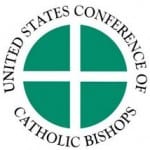 Poverty rates reflect ‘serious moral failure’ writes Bishop Jaime Soto of Sacramento, California, chair of the U.S. bishop’s anti-poverty program. (Washington Post Guest Voice)
Poverty rates reflect ‘serious moral failure’ writes Bishop Jaime Soto of Sacramento, California, chair of the U.S. bishop’s anti-poverty program. (Washington Post Guest Voice)
“For instance, over 46 million Americans live in poverty. That represents over 10 percent of all families and more than one in five children. Close to 23 million are unemployed or underemployed; our economy still cannot produce enough decent jobs. This is a serious moral failure, and it must be a concern for Catholics striving to live our faith.
“Christ calls us to feed the hungry, clothe the naked, welcome the stranger, and visit the imprisoned (Matthew 25: 31-45). He lays this out as the standard against which every person will be judged. Pope Benedict XVI echoed this standard in 2005 when he wrote that the church couldn’t stop serving the poor any more than it could stop reading the Bible or administering the Sacraments ( Deus Caritas Est ). Caring for the poor is not just something nice the church does; it’s a part of who we are and essential to the church’s saving work.
… Catholics believe that people should be at the center of all economic concerns. This means promoting healthy communities at the local level, fostering relationships between businesses, individuals, institutions and the government, and promoting policies that make it easier for families to stay together, welcome new life into the world and live in a way that reflects their dignity.
Nor can we balance the budget on the backs of the poor, saying they’ll benefit from long term economic prosperity allegedly generated by such a policy. Christ said, “The poor will always be with you.” That is why the U.S. bishops and partners in the Circle of Protection remain steadfast in the call to protect poor and vulnerable people in the debates around the deficit reduction.
Directly and indirectly, in the short and long term, Catholics must remind themselves and the world of the importance of fighting poverty. It is part of living our faith, “for whoever does not love a brother whom he has seen cannot love God whom he has not seen.” (I Jn. 4.20) During this Poverty Awareness Month, we are called to see and serve the poor as we hope to see and serve our God.
See also
- www.facebook.com/povertyusa
- www.usccb.org/news/2011/11-242.cfm
Tags: poverty, Poverty Analysis, strategies, USCCB
